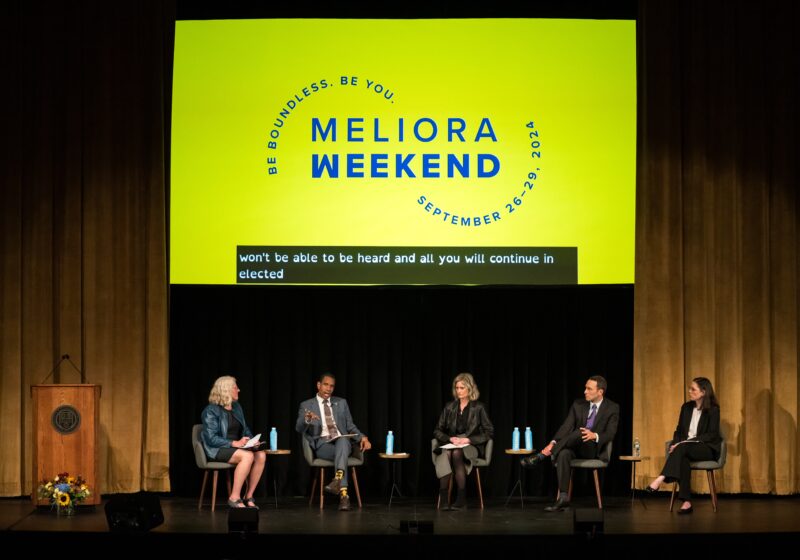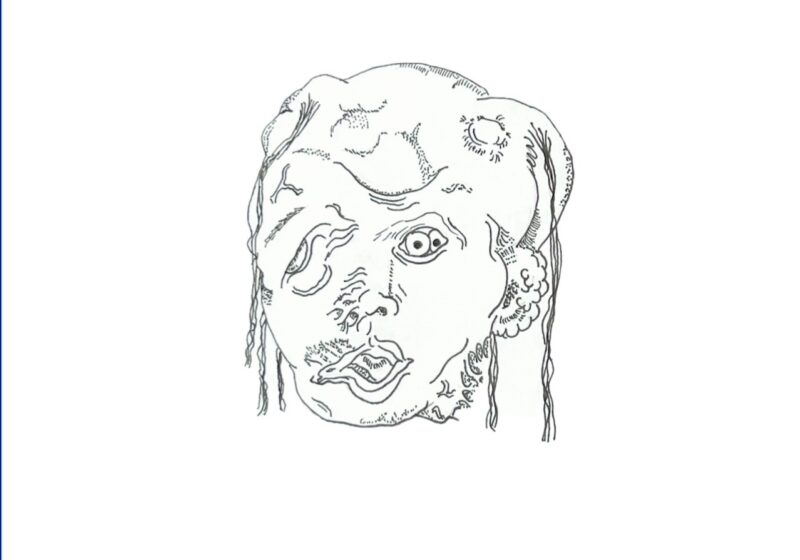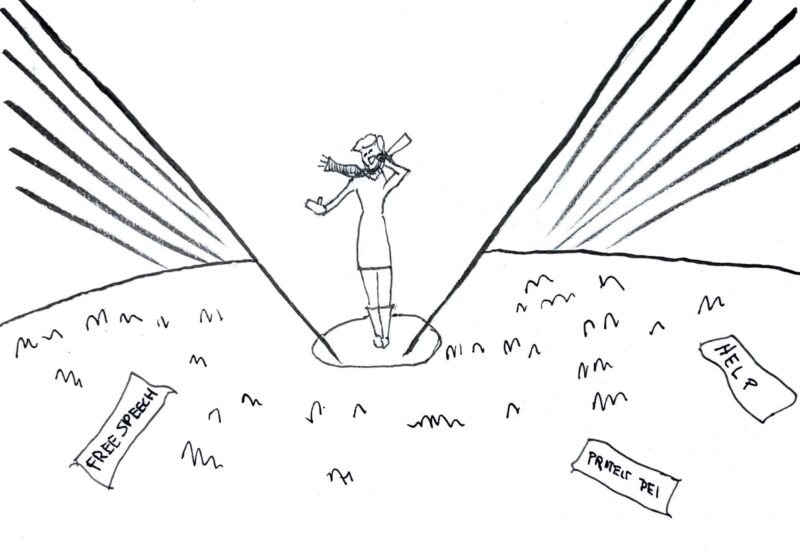Eight years ago, Donald Trump won the 2016 election — a shock to the nation and world, and a harrowing reminder of the echoes of racism, xenophobia, and nationalism that lurks the past of our nation. One term, two impeachments, and insurrection later, his effects on the institutions of our nation have forever shifted our perception of American democracy.
“I think we started to notice a real shift in the 2016 campaign, and we became increasingly concerned about threats to democracy in the United States,” Gretchen Helmke said, a political science professor at the University and one of the founders of Bright Line Watch.
In the weeks prior to the election, Helmke and her colleagues penned a letter of concern regarding the rhetoric they’d seen from Trump: that it “just seemed qualitatively different from anything that we had seen previously in a presidential campaign, [and correlated with] things that we had seen very commonly in other parts of the world where democracy was in danger.”
According to Helmke, that letter was signed by hundreds of political scientists across the nation, including every former president of the American Political Science Association.
After Trump won that November, she convened with co-founders Susan Stokes, John Carey, and Brendan Nyhan to form Bright Line Watch — comprising a collection of survey responses from political science experts and the general public that aim to gauge their perspectives on the state of American democracy. Conducted in 2017, their first expert survey contained 19 statements and asked participants to evaluate their importance to a healthy democracy, as well as how closely the United States follows those standards.
Subsequent surveys have incorporated public response to questions that reflect the turbulent nature of American politics; from the Trump presidency and subsequent impeachment to the 2020 election fiasco, and now to the latest presidential cycle. Despite the variety of topics, their intention remains the same: for both experts and non-experts to evaluate how closely our nation abides by its democratic ideals.
“One of the key theorists of democracy in the 20th century was Robert Dahl, who had a very procedural notion of democracy,” Helmke stated. “There were various institutional guarantees that had to be met in order for a country to qualify as a democracy, so things like free and fair elections, being able to protest, being able to have a free and fair press.”
While surveys often correspond to ongoing trends in national politics, the surveys are carefully crafted to ensure that the definition of democracy remains relatively non-partisan. “You want a thick enough definition that it’s covering a lot of the things people have in mind when they think about democracy from a kind of institutional perspective, but you want it thin enough so that it’s just not everything that you possibly like or think should be in a country.”
Respondents are just as carefully taken into account, Helmke explained. “It’s a very small sample of political scientists who select in to taking the survey, so it’s not a representative sample at all. [For the public], we’re partnering with YouGov … [Who] provides one of the most balanced and representative and high-quality samples out there.” To further eliminate skew in the results, Republican voices are oversampled to ensure their responses are properly weighted against those who lean Democrat, since conservatives are less likely to answer certain survey questions, according to Helmke.
Bright Line Watch’s most recent report released in October covers expectations on the upcoming election, as well as responses to misinformation regarding the current election cycle, from false claims made about Kamala Harris to Trump’s assassination attempts. Parallel surveys were further conducted from Sept. 25 to Oct. 8, amassing responses from 549 political scientists and a representative sample of 2,750 Americans.
Both experts and Americans from the general population were asked a series of questions regarding institutional norms of democracy; for example, whether elections were free from foreign influence, or if the government effectively prevented private actors from seeking politically-motivated violence. Of the 161 expert respondents, 17% indicated they felt that the United States did not prevent their elections from being affected by foreign influence.
However, responses from representative samples appear to shift their sentiment rather negatively. 36% of sampled Americans believe that elections are not free from foreign influence, and 38% believe that the government does not prevent private actors from engaging in politically-motivated violence. With the events of January 6th still resonant in the minds of many Americans, their responses reflect a deeper skepticism than that of experts.
Only 7% of experts and 24% of the public believe that Trump will concede should he lose November’s election. 38% of Republicans and 28% of Democrats also do not expect the results of the election to be close for their preferred candidate, which — based on historical precedent — may be laying the groundwork for a potential Trump contest should the election results not be in his favor.
Particularly surprising are the survey results regarding predispositions towards false claims among both parties: For one, 80% of Republicans believed that Democrats were trying to influence the election by importing and allowing illegal immigrants to vote. Approximately 38% of Democrats, likewise, believed that the assassination attempts against Donald Trump on July 13 and Sept. 15 were staged, indicating a tendency among both parties to adopt claims that validate their political worldview.
When asked to rate the Supreme Court’s ruling that granted presidential immunity to actions taken while in office, 87% of responding experts considered the ruling a threat to American democracy. The nomination of Kamala Harris without a primary process, on the other hand, saw mixed ratings: 31% considered the action beneficial to democracy, while 61% felt as though it had no effect.
"I think [in] a lot of the surveys that we’ve conducted, the overarching finding is just this calcification,” Helmke stated. “That’s a term other political scientists use, but this calcification of the divide between Democrats and Republicans over perceptions across a range of issues.”
While the nation proceeds to usher in a new era of leadership, what remains important is the perception of democratic ideals within our population. As Bright Line Watch continues to poll experts and Americans, their findings continue to illuminate sentiments that might otherwise not be seen in everyday political coverage.





